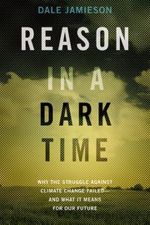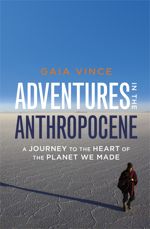 A quick heads up that the Royal Society of New Zealand’s panel discussion series on the theme of The Age Of Resilience starts tonight at the Auckland Museum at 6pm. French and NZ experts will consider the “economic conundrum” of transitioning to a low-carbon economy and at the same time deliver a “high and sustainable level of human well-being”. On the panel are Pierre Ducret (see the NZ Herald today), Dr Suzi Kerr, Professor Catherine Larrère and Fraser Whinerary. Kim Hill will be in the chair, and the evening is being recorded by Radio New Zealand for broadcast next month. More details at the RSNZ web site, and you can download a flyer here.
A quick heads up that the Royal Society of New Zealand’s panel discussion series on the theme of The Age Of Resilience starts tonight at the Auckland Museum at 6pm. French and NZ experts will consider the “economic conundrum” of transitioning to a low-carbon economy and at the same time deliver a “high and sustainable level of human well-being”. On the panel are Pierre Ducret (see the NZ Herald today), Dr Suzi Kerr, Professor Catherine Larrère and Fraser Whinerary. Kim Hill will be in the chair, and the evening is being recorded by Radio New Zealand for broadcast next month. More details at the RSNZ web site, and you can download a flyer here.
Two further sessions are being held in Wellington and Christchurch: in Wellington tomorrow night on Climate in-justice? and Christchurch next Tuesday on The Anthropocene Challenge. Details and flyers from the RSNZ here. An interesting series — and if you can’t make the live recordings, all three will be on Radio NZ National in September and October as part of the Talking Heads strand.

 Dale Jamieson is a philosopher long acquainted with the work of climate scientists. His recently published book was begun 25 years ago, “an avocation that became an obsession”. He used to joke when asked why the book wasn’t appearing that he was waiting to see how the story ended. Then it dawned on him after the failed 2009 Copenhagen conference that there was no ending, and certainly not a happy one. The continuing journey is largely a matter of salvaging what we can from the wreckage. The book’s title sets the stark picture:
Dale Jamieson is a philosopher long acquainted with the work of climate scientists. His recently published book was begun 25 years ago, “an avocation that became an obsession”. He used to joke when asked why the book wasn’t appearing that he was waiting to see how the story ended. Then it dawned on him after the failed 2009 Copenhagen conference that there was no ending, and certainly not a happy one. The continuing journey is largely a matter of salvaging what we can from the wreckage. The book’s title sets the stark picture:  Science journalist
Science journalist  In my post at The Daily Blog today —
In my post at The Daily Blog today —